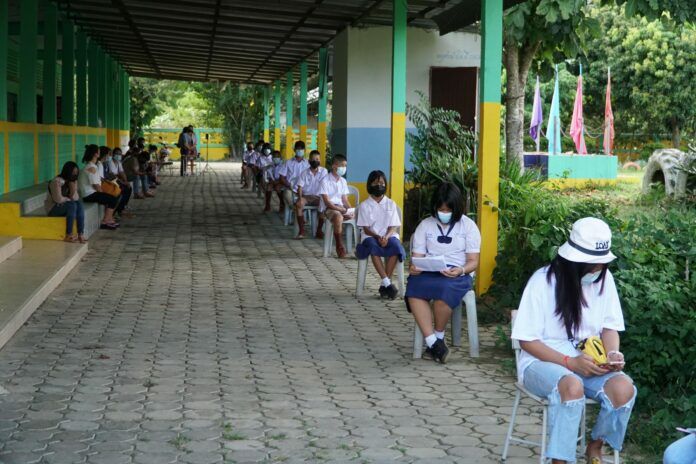Thailand intensifies efforts to end childhood statelessness

In a seminar held in Bangkok, officials from the Thai Government, civil society organisations, and UN agencies gathered to reinforce their efforts towards ending childhood statelessness in Thailand. The seminar was part of the UNHCR-UNICEF Joint Strategy for Addressing Childhood Statelessness and aimed to evaluate the progress made in the country, identify challenges, and explore solutions for improved collaboration among key stakeholders.
Thailand has made significant strides in legislation and policy to address statelessness over the past few decades. However, Giuseppe de Vincentiis, a UNHCR Representative, acknowledged that resolving childhood statelessness in Thailand is still a work in progress. He welcomed the Royal Thai Government’s (RTG) commitment to ending childhood statelessness, and pledged UNHCR’s continued support to the government and stakeholders in building on the progress made so far.
“Every child has a right to a nationality or a legal status,” said Kyungsun Kim, UNICEF Representative for Thailand. “This is a fundamental right and the first gate that enables children to enjoy other basic rights, including the right to survival, education, protection, and meaningful participation. Without a nationality or a legal status, it is extremely difficult for a child to live a quality life and secure a bright future.”
The RTG has endorsed UNHCR’s #IBelong campaign to end statelessness by 2024, pledging to provide a pathway to obtaining legal status or nationality for stateless persons, including children. The government also aims to enhance access to education, social services, and protection for them. Since 2015, over 63,000 registered stateless persons have acquired Thai nationality.
Under Thai law, any child born in Thailand can register at birth, obtain a birth certificate, attend schools, and access health services, even if they do not have a legal status or any documents. Eksiri Pintaruji, Director General of the Department of International Organizations at the Ministry of Foreign Affairs, said that the milestone event not only provides an opportunity to reflect on the progress made in addressing childhood statelessness but will also help refine and accelerate efforts to comprehensively resolve statelessness among children in Thailand.
In Thailand, UNHCR works closely with the RTG to support efforts to prevent and reduce statelessness. The work includes advocacy and technical support for law and policy reform, capacity building initiatives, and supporting the RTG in implementing the pledges it made as part of the global #IBelong campaign to end statelessness.
UNHCR has also partnered with the Adventist Development and Relief Agency (ADRA) since 2015 to support Thai authorities in implementing civil registration and nationality procedures by providing legal assistance to stateless persons and raising awareness among affected communities in Chiang Rai’s Mae Fah Luang, Mae Chan, and Mae Sai districts. Since 2015, over 50,000 stateless people have received legal assistance from UNHCR and its partner ADRA.
UNICEF, in partnership with Terre Des Hommes Germany and the Stateless Children Protection Network, launched mobile civil registration units in 2022. These units travelled to schools in northern Thailand to facilitate the registration process for stateless children and children without a legal status. To date, the mobile unit has reached 22,000 G-code children.
Latest Thailand News
Follow The Thaiger on Google News:


























